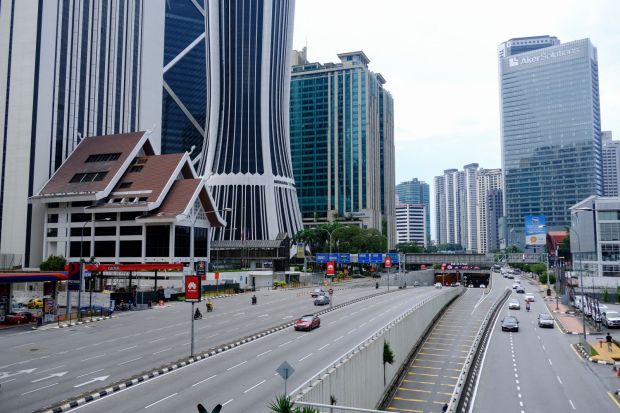Citi slashes Asean GDP growth forecast to 2.9%
CITI Research economists have slashed their 2020 economic growth forecast for Asean to 2.9 per cent, down from a January prediction of 4.3 per cent, as the Covid-19 outbreak reaches an “inflection point” in South-east Asia.
This reflects further extended drag on tourism; weaker domestic demand from both social distancing measures and the “fear factor”; transitory supply shocks; and a drop in external demand for exports, as the virus spreads to developed markets, Citi said in a report on Thursday.
The assessment is made following an “exponential jump” in new cases in Asean since March 14, Citi said. Malaysia now tops the number of cases within Asean at 900, of which more than half are linked to a mass religious event two weeks prior that saw more than 15,000 attendees from Malaysia and abroad.
Even with the spike in confirmed cases in Indonesia, Philippines and Thailand over the past week, Citi economists believe numbers could rise even further as they believe current numbers are “significantly under-reported due to limited testing”. In addition, the limited travel restrictions and social distancing measures until recently mean that there is an increased risk of contagion coming from both within and outside the region.
A recovery is likely to be “U”-shaped rather than “V”-shaped, the report said, “with China’s double-digit contraction in retail sales and GDP (gross domestic product) in Q1 giving a sense of the order magnitude in a more extreme scenario”.
There could be a further extended drag on tourism as travel restrictions are broadened to more markets, with Thailand, Malaysia and Singapore likely worst hit, factoring in both exposure to tourism revenues and severity of restrictions, the report said.
This could be exacerbated by weaker domestic demand from both social distancing measures and the “fear factor”, although Citi said rising fatigue could result in eventual conditioning and “normalisation”, as seen recently in Singapore.
Transitory supply shocks are also most likely to arise in Singapore and Thailand, due to factory closures in Malaysia, as more than 1 per cent of the value-add of their exports is derived from Malaysia, Citi said.
It said Singapore in particular is more dependent on intermediate imports from Malaysia (13.4 per cent of total intermediate imports) than from China (12.3 per cent), although Thailand is also more dependent on Malaysia once primary goods are included in the computation.
It added that Singapore’s manpower supply could be hard hit by travel restrictions on over 300,000 Malaysians who commute daily across the land border to work. This group composes around 10 per cent of Singapore’s total employment and as much as half of lower wage work permit holders.
In comparison, the lockdown in the Philippines is likely to have a smaller impact on Asean, though Singapore and Thailand could be comparatively more affected within the region, Citi said.
A drop in external demand for exports, as the virus spreads to developed markets, would see Indonesia and Malaysia also affected by weaker commodity exports. “However, we are hopeful that niche segments could benefit and cushion the impact – tech (Malaysia, Singapore, Thailand), medical equipment (in Malaysia), and pharmaceuticals (in Singapore),” the report said.
While Citi has slashed GDP forecast for Asean to 2.9 per cent, it is expecting Q1 to slow to 2.7 per cent and for Q2 to bear the brunt at an expected 2.4 per cent growth. The second half of the year could see a recovery at 3.3 per cent, it said.
“We now expect an outright 2020 GDP contraction and H1 technical recession in Thailand, near stagnation in Singapore, and growth almost half of potential in Malaysia. In all cases, our quarterly profiles suggest a U with only a mild recovery expected early Q3, rather than the V we had expected earlier.
“Our forecasts are likely lower than consensus and official forecasts in all economies, but risks remain to the downside. In a downside scenario with a sharper H1 slowdown and milder H2 recovery, 2020 GDP growth could slow to just 2.4 per cent,” Citi said.


 English
English




